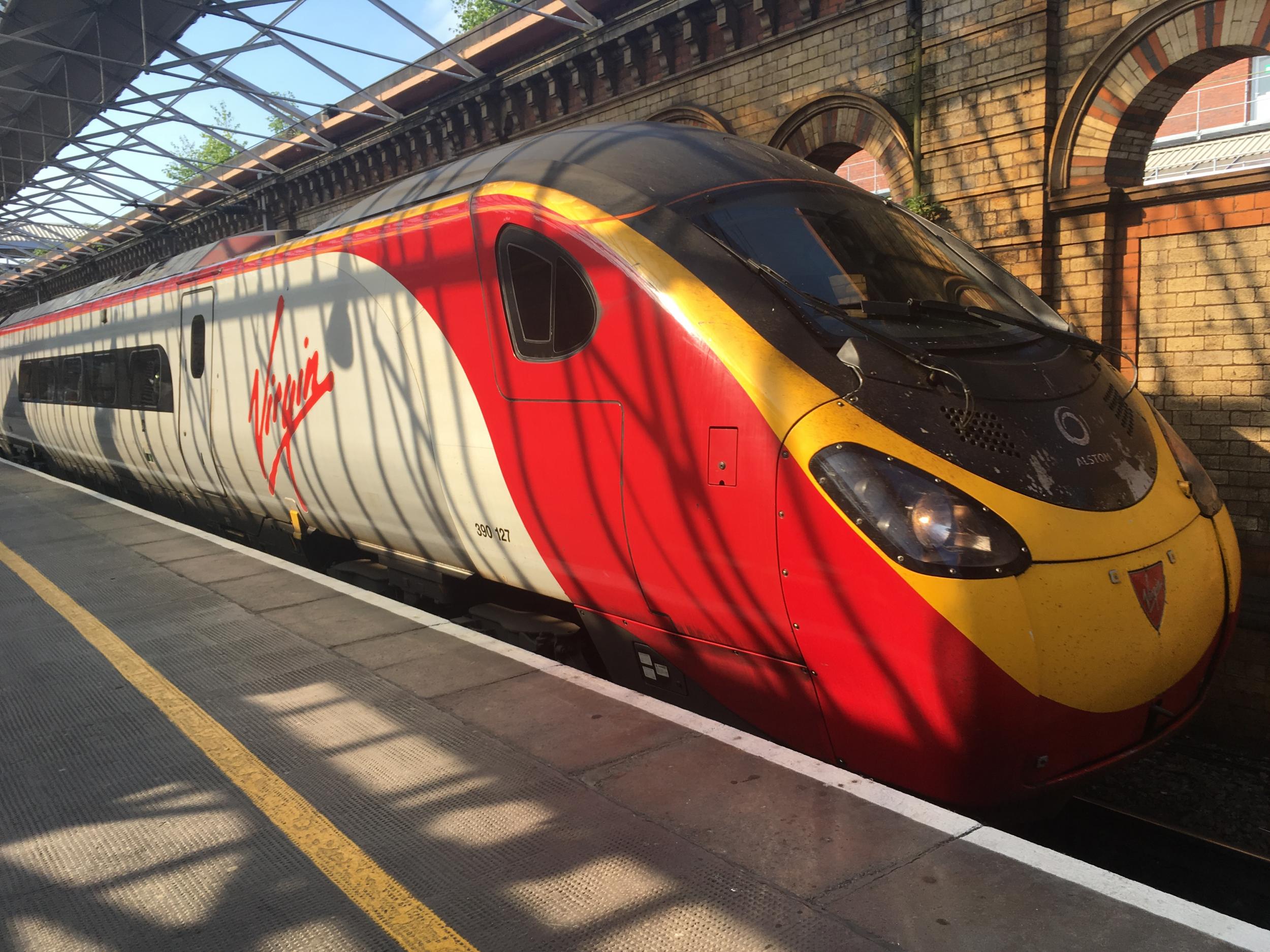Virgin Trains promises UK's 'most advanced' railway service between London and Liverpool
Another challenge to the rail industry from Sir Richard Branson’s West Coast operation

Your support helps us to tell the story
From reproductive rights to climate change to Big Tech, The Independent is on the ground when the story is developing. Whether it's investigating the financials of Elon Musk's pro-Trump PAC or producing our latest documentary, 'The A Word', which shines a light on the American women fighting for reproductive rights, we know how important it is to parse out the facts from the messaging.
At such a critical moment in US history, we need reporters on the ground. Your donation allows us to keep sending journalists to speak to both sides of the story.
The Independent is trusted by Americans across the entire political spectrum. And unlike many other quality news outlets, we choose not to lock Americans out of our reporting and analysis with paywalls. We believe quality journalism should be available to everyone, paid for by those who can afford it.
Your support makes all the difference.Sir Richard Branson’s West Coast rail enterprise could return to fight another day.
The Department for Transport (DfT) has disqualified Virgin Trains from bidding to continue to run on the main line from London Euston to the West Midlands, northwest England and Scotland beyond 2020. The DfT said: “They submitted non-compliant bids.”
A compliant bid involved assuming some liability for staff pensions, something Virgin Trains regarded as an unacceptable risk.
Last week the train operator said it would release an app that promises savings for rail passengers of around £1bn a year. Much of the saving is derived from exploiting inconsistencies in the fares system with a technique known as split ticketing.
Other rail firms believe that such an app, if it proved successful, could undermine assumptions about revenue over the entire rail system.
Now Virgin Trains plans further disruption with competition for the next West Coast operation. It has applied to the rail regulator to launch the UK’s “most advanced and customer-focused train service” between London Euston and Liverpool Lime Street.
They will be run as an “open access” operation, such as that provided on the East Coast by Grand Central and Hull Trains.
From May 2021 Virgin Trains wants to provide hourly services between the Thames and the Mersey, with free wifi, at-seat catering and a guaranteed seat – since everyone will need a seat reservation.
Uniquely, every ticket would be guaranteed to be at least 10 per cent cheaper than equivalent tickets offered by rail competitors.
There will also be automatic compensation for delays, a courtesy pioneered by Virgin Trains.
The link would also call at Nuneaton, Lichfield, Tamworth and Liverpool South Parkway, which are currently under-served or not served at all by inter-city trains.
Virgin Trains says it would guarantee no overcrowding in normal operations, since the normal rules which require rail firms to carry anyone with a flexible ticket would not apply.
Phil Whittingham, Virgin Trains’ managing director, said: “These new services will allow us to take the customer experience on the UK’s railways to the next level and show the rest of the industry how it can be done.”
The future of franchising is one of many issues being considered by Keith Williams as part of his rail review for the DfT.
Virgin Trains may be told that its bid cannot be evaluated until the future shape of the rail industry is known.
Separately, Eurostar has begun its three-trains-a-day service between London St Pancras and Amsterdam, increasing capacity on the route by 58 per cent.
But services from the Dutch to the British capital are still unable to carry passengers straight through, requiring a change of train at Brussels.
Join our commenting forum
Join thought-provoking conversations, follow other Independent readers and see their replies
Comments